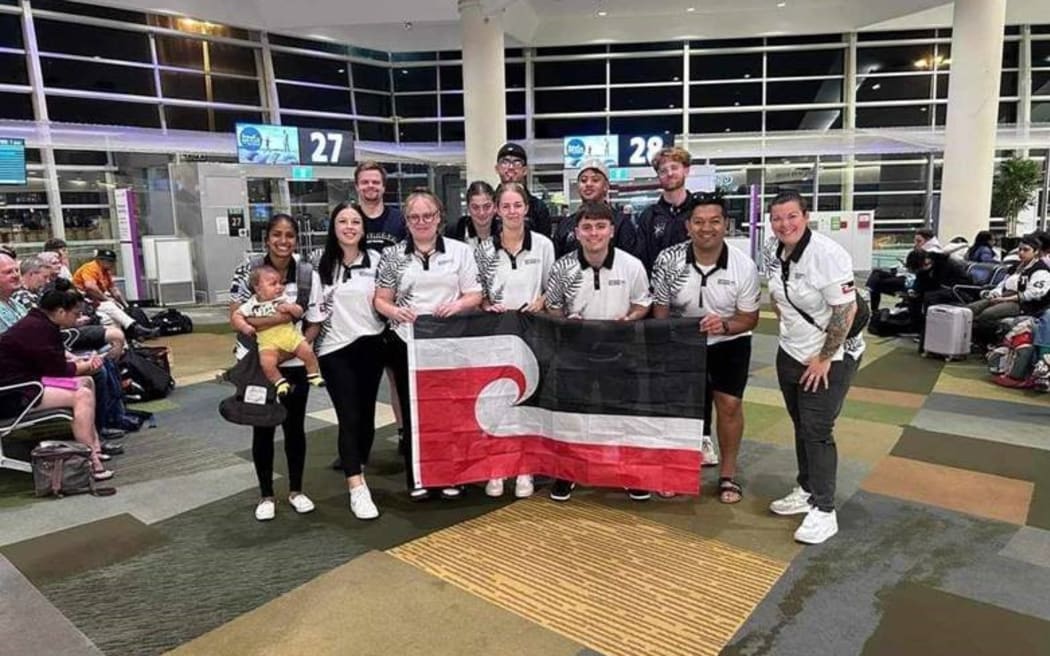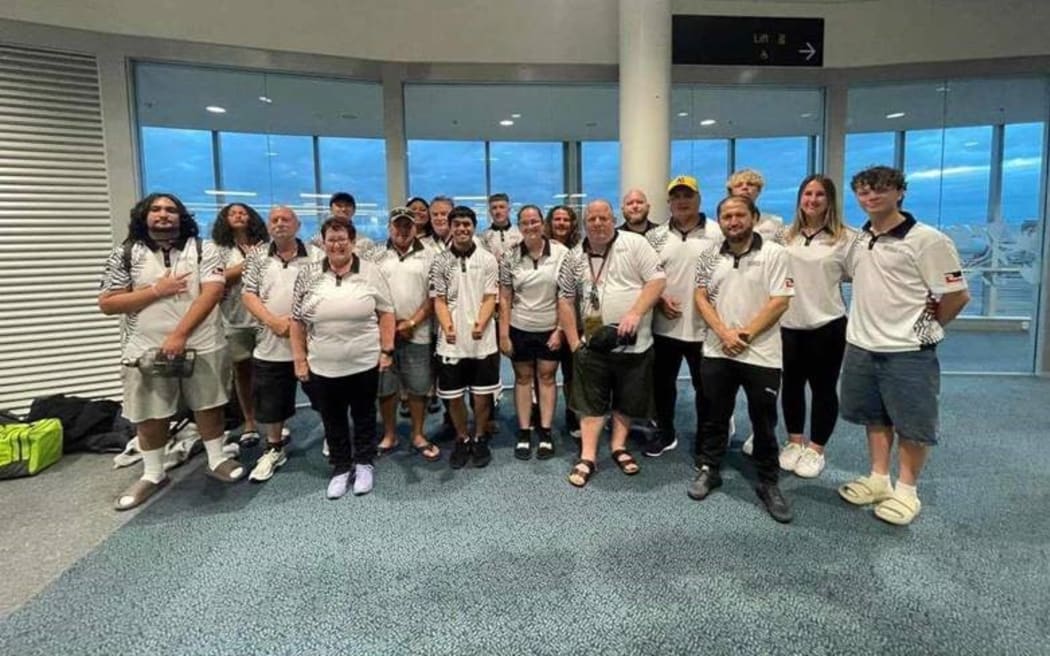
Photo: Supplied / Deaf Sports NZ
Deaf Sports New Zealand says this week's Australian Deaf Games gives deaf Kiwi athletes a chance to come together and participate as equals.
A team of 56 competitors, ranging in age from 12 to 70, is in New South Wales representing New Zealand across 10 sports in the multi-sport event.
The biennial national competition was first held 60 years ago - with New Zealand taking part for the first time in 2018, when the futsal team came away with silver and bronze medals.
This year's Aotearoa team is the largest yet, outside of the Deaflympics, and has already won three bronze medals - in tennis and 11-side football.
The team will take on their Australian counterparts in futsal, basketball, lawn bowls, tennis and other sports, before it wraps up on Saturday.

Photo: Supplied / Deaf Sports NZ
Deaf Sports New Zealand president Chris Sinclair said deaf sports were a massive part of the culture and identity for many in the community.
"It is a time where we can all get together, and participate as equals - as in the hearing world, we love to compete too, but there are disadvantages, such as language and referees. Whereas at deaf sports, its all the same language, accessible and equitable for all," Sinclair said.
The games were a precursor to the Deaflympics or Paralympics for some athletes - including those striving to compete in the Deaflympics or World Championships, he said.
But most had to take time off work and fund their own way across the Tasman Sea.
"We have players who are passionate, motivated, and giving their all to participate in the games. We also have a great team of parents who are here supporting their sons and daughters, but they also are supporting Deaf Sports New Zealand in enabling youth to participate in these games."
Sinclair said the majority of the support deaf sports received was usually from players, whānau and friends from within the community.
"The deaf sports sector in New Zealand really struggles for recognition.
"We just wish there was a better pathway for deaf sports, when you compare us to others, such as Paralympics or Blind Sports.
"But we are working with Sports New Zealand and the recognition is slowly growing, but if I can say, it's not happening fast enough. "
He urged sports teams and groups to welcome deaf people into their teams, with a few simple tips.
"For deaf people to participate in sports, there is really only two things to adapt: visibility and language.
"If the referee starts playing with a flag alongside a whistle, then the sport becomes more accessible for a deaf person to play."

